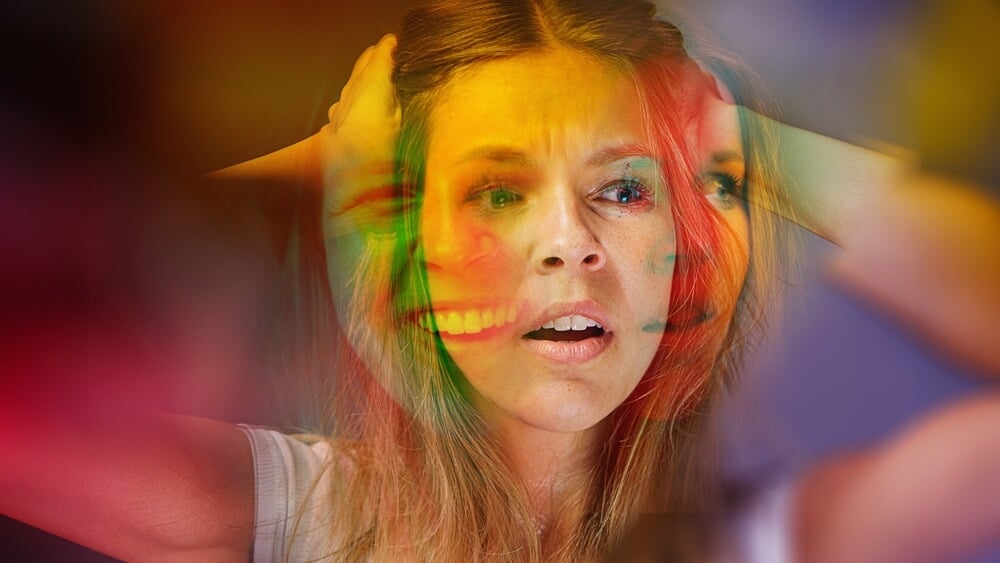Going through a bipolar depressive episode entails a dramatic experience for people with bipolar disorder. They often are faced with persistent and intense feelings of sadness, hopelessness, and emotional numbness. These severe depressive symptoms can dramatically impact their daily functioning, motivation, and overall quality of life. When this mental health condition occurs, it’s imperative to understand how to get out of a bipolar depressive episode.
An estimated 82.9% of people with bipolar disorder had a serious impairment, the highest among mood disorders, according to the National Institute of Mental Health. The severity of symptoms from a bipolar depressive episode highlights the importance of finding appropriate mental health treatment for bipolar disorder. If untreated, bipolar depression can lead to significant life challenges, including an increased risk of suicide and substantial personal and professional issues. However, with comprehensive mental health care, individuals can learn to recognize early warning signs, develop resilience, and create personalized intervention strategies that minimize the impact of depressive episodes.

What Is a Depressive Episode in Bipolar Disorder?
Someone with bipolar disorder experiencing a depressive episode will be in an intense low mood and emotional state. They will have a profound and prolonged feeling of sadness and emptiness, which can feel overwhelming and challenging to escape. They can also experience significant changes in their energy and motivation, including extreme fatigue and low energy, with difficulty initiating or completing even simple tasks.
Cognitive symptoms can lead to difficulty concentrating or making decisions due to slowed thinking and negative thought patterns. They can also have feelings of worthlessness or excessive guilt compounded by recurring thoughts of death or suicide. Physical symptoms can include significant changes in sleep patterns and appetite. They may also have reduced physical activity and movement with varying levels of severity. These symptoms can typically last for at least two weeks and can be severe enough to impact work and managing relationships when dealing with bipolar disorder.
Professional medical guidance is crucial for accurately diagnosing and effectively treating bipolar depressive episodes. Individuals experiencing these symptoms should seek specialized mental health support to develop a comprehensive, personalized treatment plan that addresses their unique needs and experiences. Treatment for a depressive episode usually involves a combination of medication, such as mood stabilizers and antidepressants, along with psychotherapy and lifestyle management to help individuals manage and mitigate the impact of these episodes.
Mental Health Treatment That Works
What Is the Difference Between Bipolar and Manic Depressive?
Bipolar and manic depressive are actually the same condition. Manic depression is an older term that was commonly used before psychiatric terminology was standardized, and it has been replaced by bipolar disorder in modern medical diagnosis. The updated terminology reflects a better understanding of the condition’s complexity and helps reduce some of the historical stigma associated with mental health diagnoses.
The term bipolar disorder more accurately describes the condition’s characteristic mood fluctuations between two “poles”—manic (elevated) and depressive (low) states. While the terminology has changed, the underlying symptoms remain the same: periods of intense emotional highs alternating with periods of deep depression. Modern psychiatric classification now uses more specific subtypes like Bipolar I, Bipolar II, and Cyclothymic Disorder to provide more precise descriptions of an individual’s specific mood disorder condition. Take the bipolar quiz to learn more about the condition’s symptoms.

What to Do During a Bipolar Depressive Episode?
During a bipolar depressive episode, there are several important strategies to manage symptoms and support your mental health:
Seek Professional Help
- Contact your therapist immediately
- Do not adjust medications without professional guidance
- Consider increasing therapy sessions or checking in more frequently
- If experiencing suicidal thoughts, reach out to a crisis hotline or emergency services
Maintain Basic Self-Care
- Establish a consistent sleep schedule
- Eat regular, nutritious meals
- Practice basic hygiene, even when it feels difficult
- Try to maintain a minimal daily routine
- Stay hydrated and limit alcohol and caffeine consumption
Create a Support Network
- Inform trusted family members or close friends about your current state
- Ask for practical help with daily tasks
- Consider joining a support group for individuals with bipolar disorder
- Don’t isolate yourself completely
Implement Mood Management Techniques
- Practice gentle exercises like walking or yoga
- Use mindfulness and meditation apps
- Keep a mood journal to track symptoms
- Use grounding techniques during intense emotional periods
- Set small, achievable daily goals
Reduce Stress
- Minimize significant life changes during an episode
- Practice stress-reduction techniques
- Limit exposure to overstimulating environments
- Consider temporarily reducing work or social commitments
- Use relaxation techniques like deep breathing
Safety Planning
- Remove potential harmful items if experiencing severe depression
- Have emergency contact information readily available
- Create a crisis plan with your mental health professional
- Ensure you have ongoing professional support
Depressive episodes are temporary, and with proper support and management, it is possible to navigate through them effectively.
How to Stop a Depressive Episode?
While it is not always possible to completely stop a bipolar depressive episode immediately, there are several strategies to help manage and potentially mitigate its intensity. The first crucial step is early recognition of warning signs, such as changes in sleep patterns, decreased motivation, increased irritability, or withdrawal from social interactions. After identifying these early indicators, immediate intervention can help slow the episode’s progression.
The second critical approach involves a comprehensive management strategy that addresses both psychological and physiological aspects of the depressive episode. Medication management is paramount, and people must work closely with a psychiatrist to ensure their current treatment plan is effective and make adjustments if necessary.
Cognitive Behavioral Therapy (CBT) techniques can help reframe negative thought patterns and provide coping mechanisms during difficult periods. Additionally, lifestyle interventions like maintaining a balanced diet and avoiding alcohol and recreational drugs play a significant role.
Social support is equally important as communicating openly with trusted friends and family, participating in support groups, and not isolating yourself can provide emotional buffering. While it is not always possible to prevent a depressive episode entirely, strategies can be used to minimize its impact and duration.
Learn How to Get Out of a Bipolar Depressive Episode With Help From Moment of Clarity
The World Health Organization estimates that 40 million people live with bipolar disorder. With millions of people impacted by this mental health condition, the importance of finding appropriate mental health treatment for bipolar disorder cannot be overstated. When determining how to get out of a bipolar depressive episode, the first critical step is seeking professional help from a qualified mental health treatment center that can provide a comprehensive treatment plan. Moment of Clarity in Santa Ana, California, provides outpatient mental health treatment to treat all types of mental health disorders, including bipolar disorder. Please call Moment of Clarity at 949-625-0564 to discover more about how overcoming a bipolar depressive episode can be achieved through professional mental health support.
External Sources
- National Institute of Mental Health – Prevalence of Bipolar Disorder Among Adults
- World Health Organization – Key Facts on Bipolar Disorder
- John Hopkins Medicine – Mental Health Disorder Statistics




